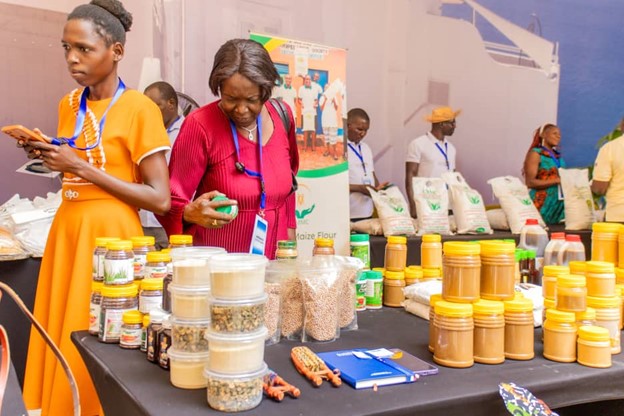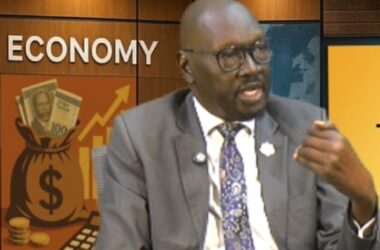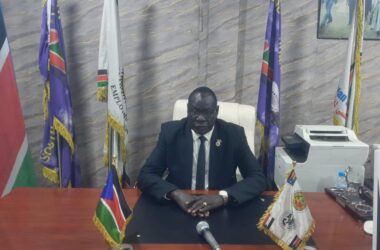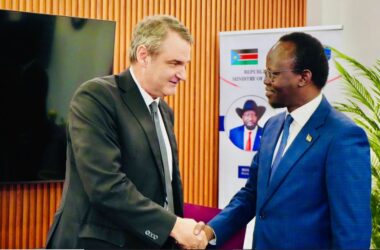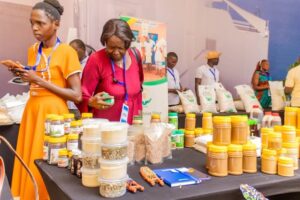
By Kei Emmanuel Duku
Agribusiness stakeholders have praised the 2SCALE Incubator’s program for its transformative impact on South Sudan’s food systems. Farmers, processors, entrepreneurs, and policymakers recently convened at the Pyramid Continental Hotel for a landmark event themed “Cultivating Equity: Building Resilient and Inclusive Agribusiness Ecosystems in South Sudan.”
Organized by the 2SCALE program’s Incubator Agribusiness Club, the gathering highlighted how collaboration across the value chain is reshaping the country’s food systems, which are still grappling with food insecurity and economic fragility.
According to Nancy Lumeit, CEO of the South Sudan Agribusiness Producers Union (SSAPU), billions of dollars have been invested in South Sudan’s agriculture sector, yet many projects ended abruptly when donor funding stopped, leaving farmers without support. She assured participants that her organization is committed to filling this void.
“When donor projects phase out, farmers are often left abandoned. As SSAPU, we take it upon ourselves to sustain what has been built,” Lumeit stated. “Our farmers cannot be left behind once funding dries up—we ensure continuity, linkages, and resilience.”
Through partnerships with programs like 2SCALE, SSAPU has become a vital link between smallholder farmers and larger systems, ensuring sustainability long after projects conclude.
The initiative’s centrepiece is the Incubator Agribusiness Club, a platform that unites stakeholders across the value chain—from seed companies and processors to financial institutions and government officials. Alana Sebit, 2SCALE’s Country Team Leader, explained that the Club embodies the principles of inclusive agribusiness.
“We call it inclusive agribusiness because it is about equity, resilience, and shared value,” Sebit said. “Farmers, women, youth, and entrepreneurs all deserve a place at the table.”
One of the celebrated success stories at the event was Kanybek Company, a South Sudanese processor that produces affordable flour by blending maize with wheat. Previously, South Sudan relied heavily on imports from Uganda and Kenya. Now, thanks to partnerships brokered by the Agribusiness Club, Kanybek sources maize directly from farmer cooperatives in Western Equatoria, creating a sustainable local supply chain that benefits both producers and consumers.
“This is what inclusivity looks like,” Sebit noted. “A local company, sourcing from local farmers, and producing for South Sudanese families
In addition to Kanybek, Eden Multipurpose Marketing and Cooperative Society from Yambio and Nzara County Farmers Union from Nzara were also recognized for adding value to their maize by processing it into ready-to-eat flour.
Meanwhile, Mrs. Mary Benjamin Loki, Director General in the Ministry of Agriculture, praised the Club for offering practical solutions to food security.
“Farmers are the backbone of our food systems, yet they struggle without support,” Loki said. “Agriculture is not only the role of government—it is our shared responsibility.”
She urged financial institutions to increase their support for farmers, particularly women, who contribute nearly 80 percent of agricultural labor in the country.
Women and young people are central to the Club’s vision. Many women are transitioning from subsistence farming to commercial agribusiness, while youth are beginning to view farming as a viable business.
“Equity means ensuring no one is left behind,” Lumeit emphasized. “Our farmers, especially women and youth, deserve recognition and support as entrepreneurs.”
The event was more than just a workshop; as one participant put it, it was “the beginning of a movement.”
By weaving together farmers, entrepreneurs, companies, and the government, the Inclusive Agribusiness Club is planting the seeds of resilience that will outlive donor projects.
“This is not about 2SCALE,” Sebit concluded. “It is about how we build a resilient agribusiness ecosystem in South Sudan, together.”
With determination and collaboration, the Incubator Agribusiness Club is ensuring that South Sudan’s farmers are no longer left behind—but instead, placed at the very center of the nation’s journey toward food security.

